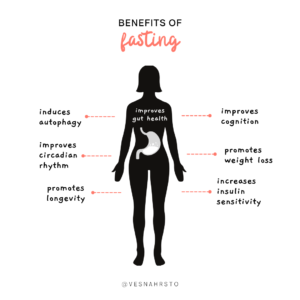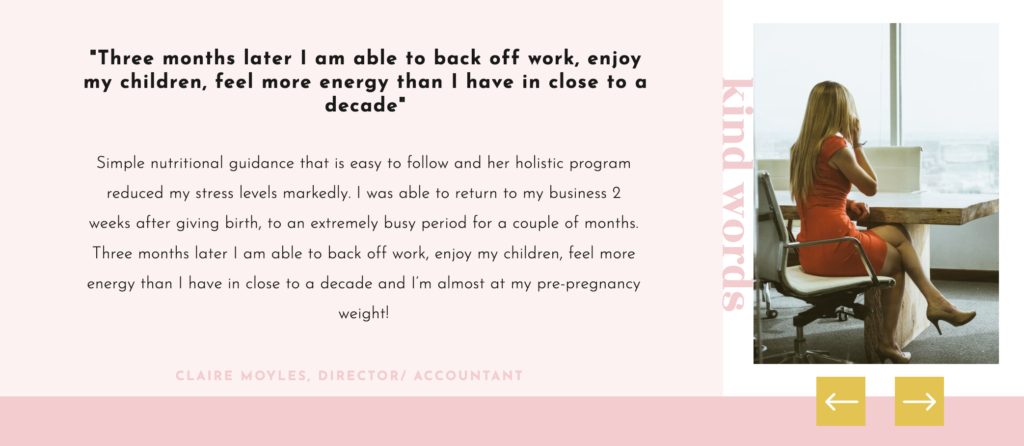The ‘switch’ to awaken your body’s ability to rejuvenate itself
I just recently came back from a holiday in Thailand – it was just what I needed to recharge. Sun, sea, and lots of time just laying on the beach. I will admit there were too many sunset cocktails and we ate out every day, so that adds up.
Since I touched down, I've been fasting, but it's a different kind of fast. I thought I'd share the benefits and the difference with this fast compared to others like intermittent fasting.
Firstly, intermittent fasting is either a full or half-day fast, daily or multiple times per week.
Prolonged fasting (what I'm doing) is longer but it's calorie restricted. This means I can still eat small meals and activate the same response and benefits in the body as 4-day water fast.
And the benefits are incredible……
Fasting was part of our evolution. In our hunter-gather days due to food scarcity, it was part of our normal diet. Religion sustained fasting in our lives afterward.
But in the last 50 years, fasting has been replaced by uninterrupted daily food intake and it's making us sick, overweight, and prone to early aging and age-related diseases.
The benefits of prolonged fasting:
Weight loss: Yes, it does stimulate fat burning esp around the abdomen and liver but don't just focus on ‘weight loss'. The power of prolonged fast offers so much more.
Healing: Fasting turns on a ‘switch' inside the body that awakens the natural healing response. Once activated, it continues even after the fasting period.
Autophagy: It stimulates ‘autophagy', the process of cleaning up damaged cells and producing energy – an internal house clean. Autophagy diminishes as we age and contributes to the aging process. Think of results like anti-aging, cancer protection, improving mitochondria (energy-producing cells), and protection against age-related disease.
Stem-cells: Leads to cellular regeneration. It activates stems cells that continue to work on organ and system regeneration even after the fast – once you return to normal eating.
This is why I say it's like ‘turning a switch in the body, which once activated, will continue to improve metabolic health, longevity, and anti-aging.
And more….
I love it for the long-term benefits it activates in the body, and changes our relationship with food, constant eating, distraction, and mindless eating.
Our Peak Revival program guides clients 1:1 through this process as it needs to be monitored. We also use continuous glucose monitoring to ensure the body is burning body fat for fuel. We address fatigue/ burnout prior to commencing a fast.
We're opening the doors again in February, you can find out more here & join the waitlist
Much love,
P.S.S Have questions about fasting? Ask me below..
Hi, I'm Vesna!
I’m a Naturopath, Transformational Coach, Mind-body Medicine Specialist & Speaker, and I love supporting modern women who are overworked, busy & burnt out.
Freebie Alert:
Body + Business Reboot Assessment
Free Step-By-step plan designed for women in business.
Leave a Reply Cancel reply
You must be logged in to post a comment.
Where exhausted & anxious professional women regain their ENERGY & Confidence. So they can live the life they truly want.



Thanks Vesna but I’m confused.
I thought that you were against fasting because it activated the stress response and increased cortisol. I thought that was why we needed to eat breakfast within 20 minutes of waking.
Can you please explain.
Many thanks,
Sarah
Hi Sarah, I still recommend eating breakfast within 20mins of rising, even during fasting. I’m still eating, just restricted. Fasting can only be done once adrenal fatigue/ burnout has been addressed so that blood glucose levels can remain stable. Intermittent fasting is best done with an early dinner, rather than missing breakfast, and has shown the best results for health. Hope that answers your questions xx
When would you use ‘prolonged fasting’? And what determines the length of the fasting period?
I like prolonged to kickstart healing, I’d use it for everyone except when someone is burnt-out/has chronic stress or adrenal fatigue, or heart problems, history of eating disorder etc – that needs to be addressed first. 4 days at a time, anything longer affects the metabolism in negative ways.
what do you mean when you say i’m still eating breakfast after 20 minutes of rising?
what do you eat for breakfast ?
is that not breaking yr fast?
Hi Corina, The fasting protocol I follow mimics a fast. I’m using specific foods and keeping calories very low to trigger the ‘starvation response’ in the body. I wrote more about it here: https://vesnahrsto.com/having-breakfast-vs-fasting/
How many hrs fasting eg 7pm to 7am? Still eat during the dat like we did on BBB?
Leanne
12 hours is intermittent fasting x
Hi Vesna and team,
I’m still confused! I did BBB 2 years ago and I don’t think I have adrenal fatigue any more but life is definitely stressful. I think I’m better at handling it though. I’m interested in trying intermittent fasting – quite honestly – to lose a few kg. I did your advance weight loss course a year ago and I did lose the 3 kg I wanted to lose but I’ve put it back on again. In that program you suggest moving to IF as a maintenance but I didn’t ever do that. Now I’m looking to lose them again! I’m 47 and no health conditions but did have adrenal exhaustion quite bad (diagnosed by a naturopath with testing) 10 years ago. I’ve done a lot of work on myself since then. Is IF ok for me? I had read you previously recommended eating breakfast and having early dinner which I think would suit me but do I have to within 20 mins of waking? That would mean if I did a 16:8 eating window I would to eat dinner by 2pm. I still have to cook and feed my family too – husband and teenage sons. I would love your advice on whether or not this would work for me and if it’s ok to push your first meal to a couple of hours after you wake. Thank you 🙏
Hi Penny, it sounds like a good option. I wrote another article today about who should or shouldn’t follow a fasting protocol, it might help you decide: https://vesnahrsto.com/having-breakfast-vs-fasting/